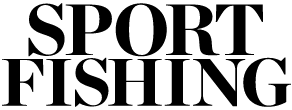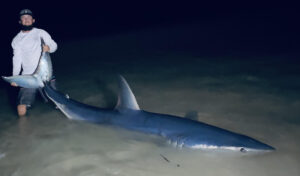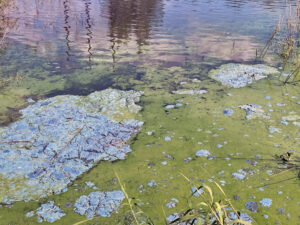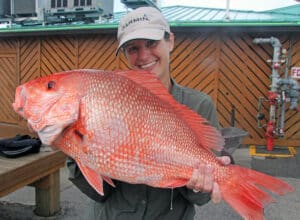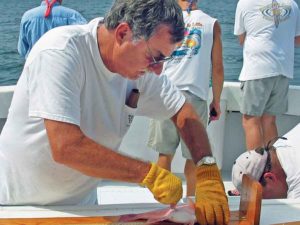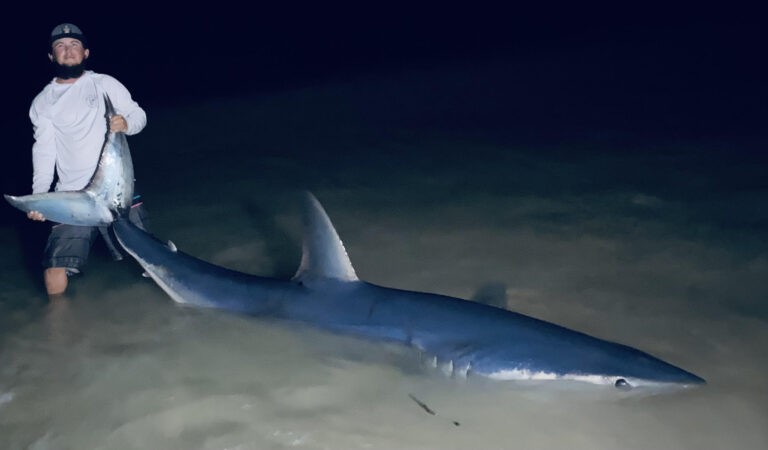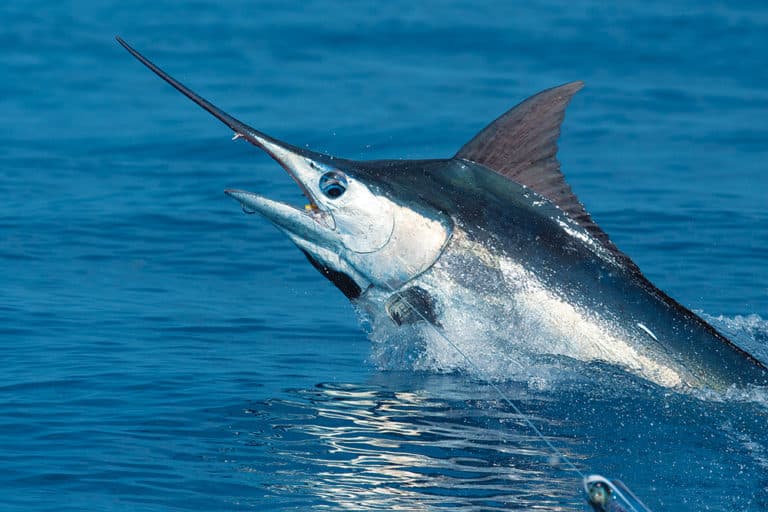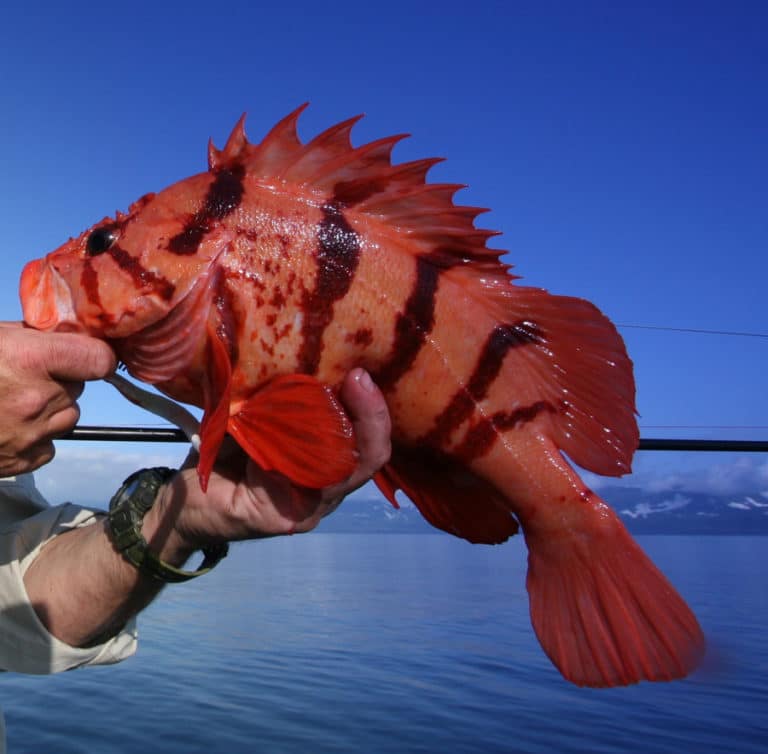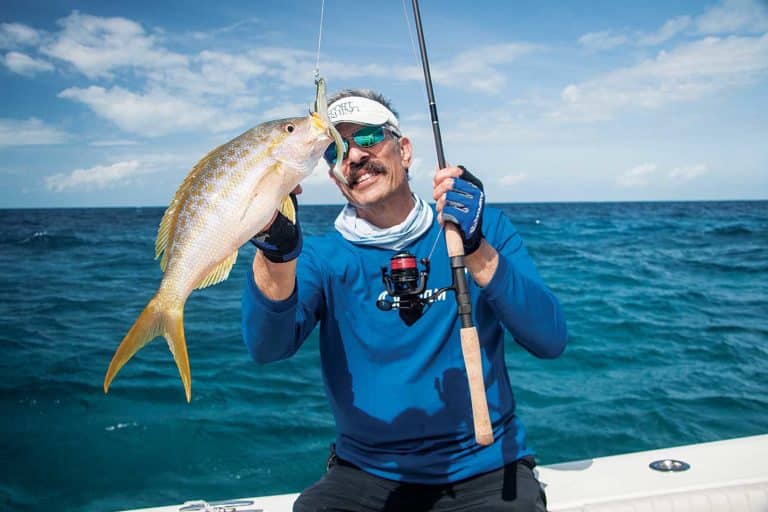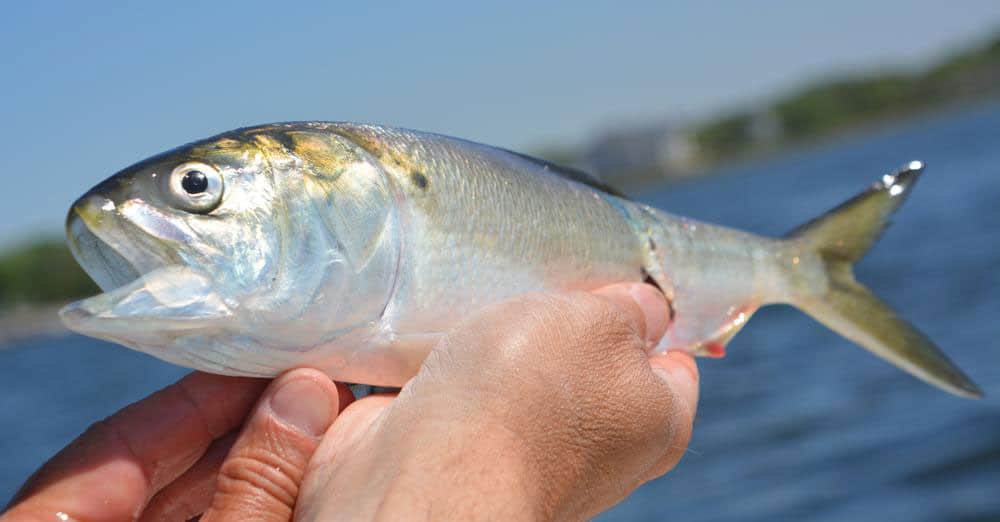
A letter dated June 14 and signed by 21 groups of anglers and conservationists was sent to Virginia Gov. Glenn Youngkin asking him to close a significant part of Chesapeake Bay’s menhaden commercial fishery. The groups want the menhaden commercial fishery closed until “science demonstrates” that such netting will not hurt the bay’s ecosystem.
According to a report by the Virginia Mercury, the groups signing the letter include the Virginia Saltwater Sportfishing Association, the Theodore Roosevelt Conservation Partnership and 19 other organizations concerned about the health of Chesapeake Bay.
“By removing more than 100 million pounds of menhaden every year from the Chesapeake Bay, the most important striped bass nursery on the East Coast, reduction fishing (for menhaden) in Virginia is undermining the sportfishing economy and small businesses throughout the commonwealth,” the letter states according to the Virginia Mercury.
Commercial fishing for menhaden – commonly known as pogeys or bunker – has been controversial in the Bay and throughout many other coastal regions where the small marine baitfish is caught and used for oil and ground into fish meal.
Menhaden also are a vitally important food fish for a wealth of inshore and near-shore species, with striped bass, bluefish and weakfish being chief predators for bunker in Chesapeake Bay. In other regions, species such as tarpon, king mackerel, cobia, sailfish, sharks, seatrout, redfish and snook key on menhaden as important food fish for their survival.
Menhaden commercial fishing operations are well organized, with spotter aircraft used in some regions. It’s chiefly done with large purse seine mother ships with smaller boats working the nets off the larger boat that then sucks up baitfish with giant vacuum-like hoses when a seine is pulled close. Menhaden are stored on board the mother ship for later delivery to processing plants.
Omega Protein is a Reedville, Va. company that is the largest commercial harvester of menhaden in Chesapeake Bay. Omega considers the letter to Youngkin “egregious and dramatic.”
“It’s just frankly not based on any real science (the letter),” the Virginia Mercury quoted Omega spokesman Ben Landry saying. “It’s just mostly opinions and this hope or belief that future science is going to indicate menhaden is a problem for striped bass, but it really does ignore that striped bass is dramatically overfished.”
Omega’s Reedville plant employs over 250 people, and catches a great majority of the commercial haul of menhaden in the Chesapeake. Omega’s Chesapeake Bay menhaden quota is 56,000 tons. Landry says Omega’s coastal harvest of pogies is about 150,000 tons.
In 2020 the Atlantic States Marine Fisheries Commission (ASMFC) began differently managing menhaden to calculate pogie quotas. ASMFC now takes into consideration how a species fits into the larger ecosystem, rather than simply abundance and harvest data of a species.
Omega believes menhaden commercial harvest is fully sustainable and notes a 2020 ASMFC report stating bunker “is not overfished nor experiencing overfishing.”
The president of the Virginia Saltwater Sportfishing Association, Steve Atkinson, said the study that resulted in the ASMFC report didn’t adequately consider local reductions of menhaden in Chesapeake Bay.
“Until science can prove this menhaden reduction fishery is not causing harm, we believe caution is absolutely called for here,” Atkinson said, according to the Virginia Mercury.
“The striped bass fishery is the largest marine recreational fishery in the U.S., driving $166 million in recreational fishing activity in Virginia alone,” the conservation groups wrote in their letter to Youngkin. “However, the economic value of striped bass fishing to Virginia has declined by over 50 percent in the past decade.”
Omega argues that reducing commercial harvest of menhaden in Chesapeake Bay will not improve striped bass populations. Landry also says the company’s Reedville plant would shut down if it couldn’t harvest menhaden from the Bay.
A spokesperson for Youngkin said the Governor and the Virginia Marine Resources Commission are meeting with the Virginia Saltwater Sportfishing Association and other groups to consider their concerns for purse seining menhaden in Chesapeake Bay.
